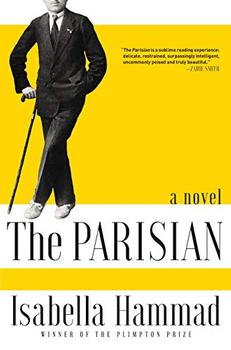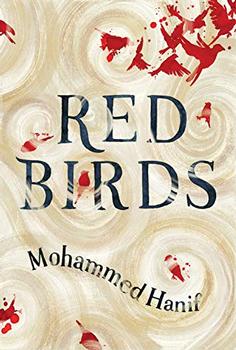Summary | Excerpt | Reviews | Beyond the book | Read-Alikes | Genres & Themes | Author Bio

In the constant rinse-and-repeat mode of today's endless news cycle, how many of us can really say that we've been paying close attention to what's been happening in Iraq in recent years? A tangled mess continues to plague the country in the wake of volatile historical events, including Iraq's reckless invasion of Kuwait and the execution of Saddam Hussein. It is only understandable, then, that contemporary literature from Iraq will be carefully combed for clues about its geopolitical landscape and how the people are faring in the wake of unimaginable wartime horrors.
If that alone was the lens through which The President's Gardens were to be viewed, it already succeeds. In painting the tragedy of a country through the inhabitants of one village, especially through close-knit friends, it lays bare the effect of war and the ability of love and friendship to provide some measure of succor. But the award-winning author Muhsin Al-Ramli goes further by creating a village that is at once intensely Iraqi and utterly universal in its petty goings-on and the rivalries and unities that simultaneously unravel and bring relationships together.
The novel starts with a sucker punch: "In a land without bananas, the village awoke to nine banana crates, each containing the severed head of one of its sons." One of the nine severed heads belongs to Ibrahim, who anchors much of the story as The President's Gardens tracks his life through a mostly average boyhood into an adulthood interrupted frequently by war. Ibrahim's best friends include "Tariq, son of Zahir, the imam of the mosque; and Abdullah, son of the earth crack, who became Abdullah, son of Salih."
"What no one expected was that war would break out in 1980. A war that would last eight years and sweep away many dreams and destinies," Al-Ramli writes. Sweep away dreams it does. And again later: "What he could not have taken into account was that Iraq would invade Kuwait on August 2, 1990, and that the drums of war would beat again, louder this time, with a greater violence and cruelty."
These extremely disruptive events, filled with all manner of gruesome happenings, directly impact the soldiers of course, especially Ibrahim, who, before his life is cruelly shortened, returns briefly to the village, a defeated man. To the chagrin of his daughter Qisma, Ibrahim chalks up life's vagaries to "fate and decree," an understandable way of making sense of terrible tragedy. While The President's Gardens doesn't shy away from cataloging wartime atrocities (a good number of corpses are peppered throughout so this is not a story for the faint of heart), it truly shines in portraying the more subtle effects war brings to the small village.
While Ibrahim is forced to serve, his more cushy friend, Tariq, evades duty by dint of his connections in Mosul and his status as imam. Al-Ramli also shows the slow evolution of the life outlook of generations of Iraqis. Ibrahim's daughter, Qisma, for example, is exasperated by her father's fatalistic view and is determined to make a better life for herself in Baghdad. Ibrahim himself finds his way in the big city working at his most surreal job yet: digging graves on the night shift to accommodate the many Iraqis killed by the ruthless Saddam Hussein. The descriptions of the President's palace are captivating in their surrealism: "It was like a dream, or like a game, a whirl of overpowering perfume, feasting, and flattering small talk. As though there were no such thing as death. As though there were no such thing as other people, no other world beyond this hall."
We might already know the cruel end that awaits Ibrahim but his life's story and those of his fellow citizens along the way make for a compelling narrative precisely because of their essential ordinariness. Occasionally the (translated) sentences feel a little belabored but they don't detract from this visceral and touching story of everyday lives carved hollow by war in a country the West largely seems to have forgotten.
![]() This review was originally published in The BookBrowse Review in August 2018, and has been updated for the
April 2019 edition.
Click here to go to this issue.
This review was originally published in The BookBrowse Review in August 2018, and has been updated for the
April 2019 edition.
Click here to go to this issue.

If you liked The President's Gardens, try these:

by Isabella Hammad
Published 2019
A masterful debut novel by Plimpton Prize winner Isabella Hammad, The Parisian illuminates a pivotal period of Palestinian history through the journey and romances of one young man, from his studies in France during World War I to his return to Palestine at the dawn of its battle for independence.

by Mohammed Hanif
Published 2019
A powerful novel about war, family and love, from the bestselling, prize-winning author dubbed 'Pakistan's brightest voice.' (Guardian)
Your guide toexceptional books
BookBrowse seeks out and recommends the best in contemporary fiction and nonfiction—books that not only engage and entertain but also deepen our understanding of ourselves and the world around us.